SCUPI Instructors Exploring AI’s Role in Their Teaching
Published on: March 18, 2024 | Views: 1645
Recently, Sichuan University has carried out the mid-term inspection seminars for the “New Century Higher Education Reform Project (Phase X) ”. Dr. Zheng Yang and his team’s project, “Research on Interdisciplinary Teaching and Learning Based on ChatGPT”, is one of the University-level projects.
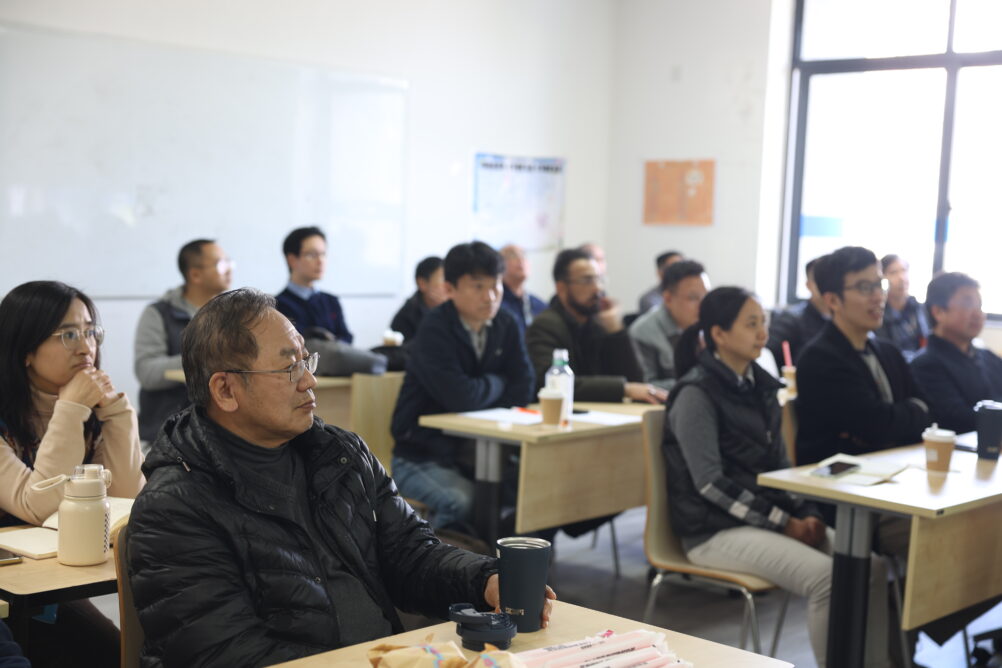
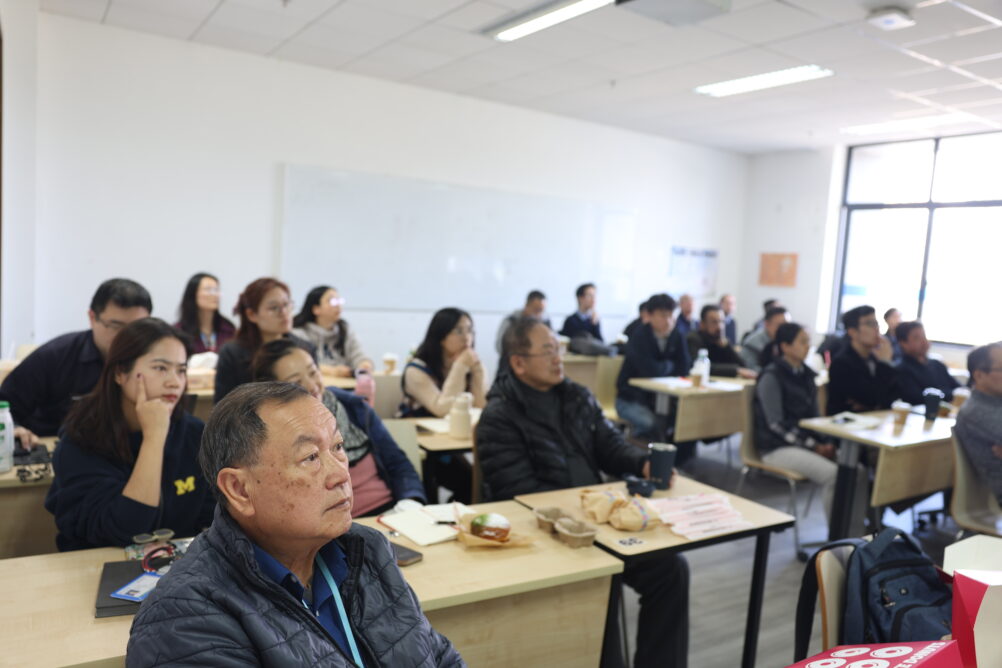
The inspection seminar from Sichuan University – Pittsburgh Institute (SCUPI) was called by Dr. Zheng Yang. He and his team members have carried out explorations of using AI tools teaching in their courses since last semester.
Dr. Zheng Yang, from General Science, first reported preliminary findings of his research project that explored Large Language Models (LLM) as tools for facilitating cross-cultural discussions about the big ideas of calculus.
He and his collaborator from San Francisco State University (USA) Mr. Carlos Lopez-Gonzalez, engaged in a three-week case study with two pairs of undergraduates–one pair from SFSU and one from SCUPI who worked together with an Al agent on collaborative calculus activities.
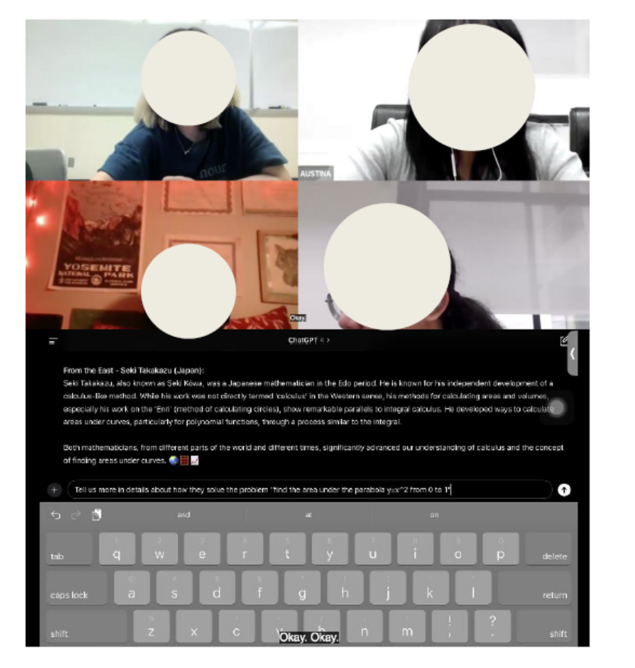
Their study explored the impact that the Al-based agent had on students’ understanding of foundational ideas of calculus. The particpants also explored ways in which Al impacted cross-cultural communication and dialog.
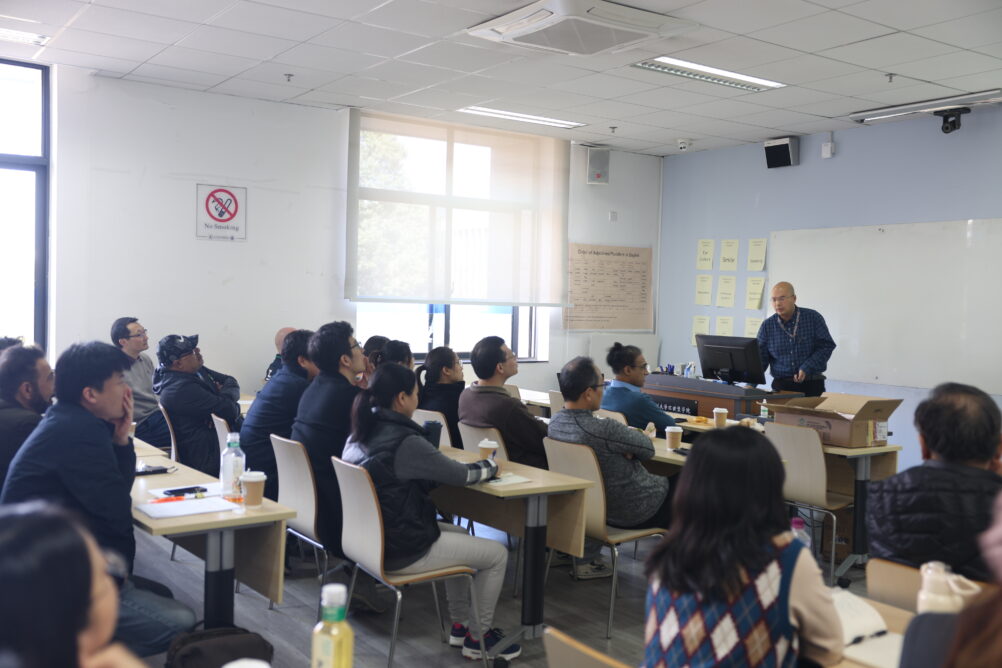
Dr. Yingjie Wu from Materials Science and Engineering (MSE), believes students can use AI tools to ace their studies.
He demonstrated how LLM can be incorporated into teaching MSE laboratory courses.
When preparing for the experiment, the students can use AI tools to create learning materials and generate sample pre-lab quizzes. During the lab experiment, the AI agent can provide guidance and real-time assistance. After completing the experiment, students can submit their lab reports to AI tools for an initial review, receiving feedback on their methodology, data analysis, and conclusions.
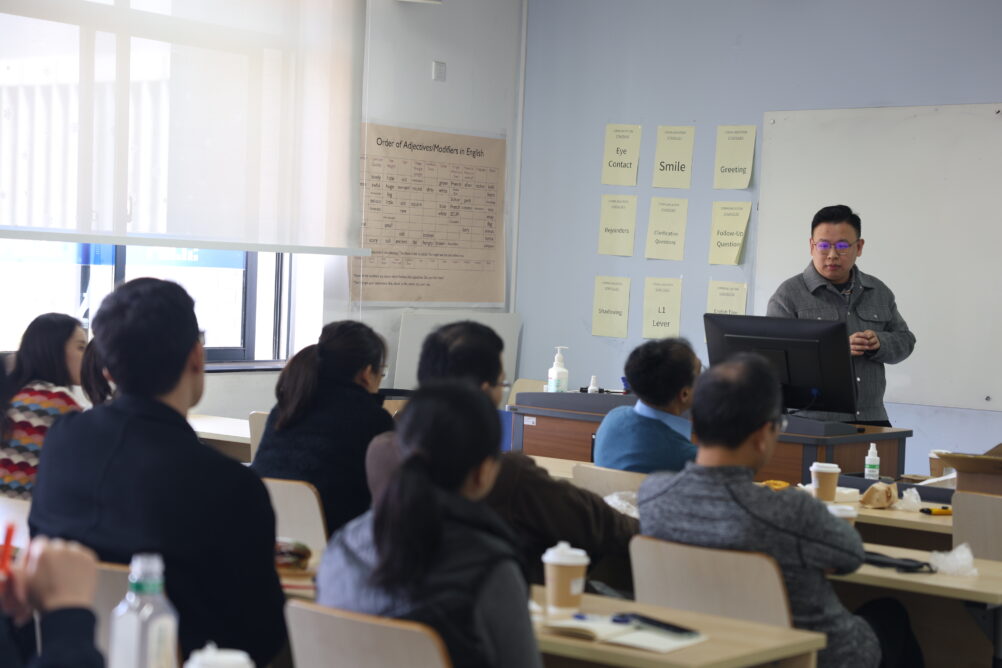
Dr. Yumei Li, as a member of the SCUPI writing center, demonstrated how AI tools (such as Turnitin) can be used to guide and improve students’ academic writing performance.
The SCUPI writing center offers courses of English writing, tutorials, and writing-integrated HSS electives. In these courses, AI tools were mainly used to do the following tasks:
- Detect students’ similarity rate
- Detect AI-generated text in students’ writing
- Detect AI-translated text in students’ writing
- Check student’s grammar and style
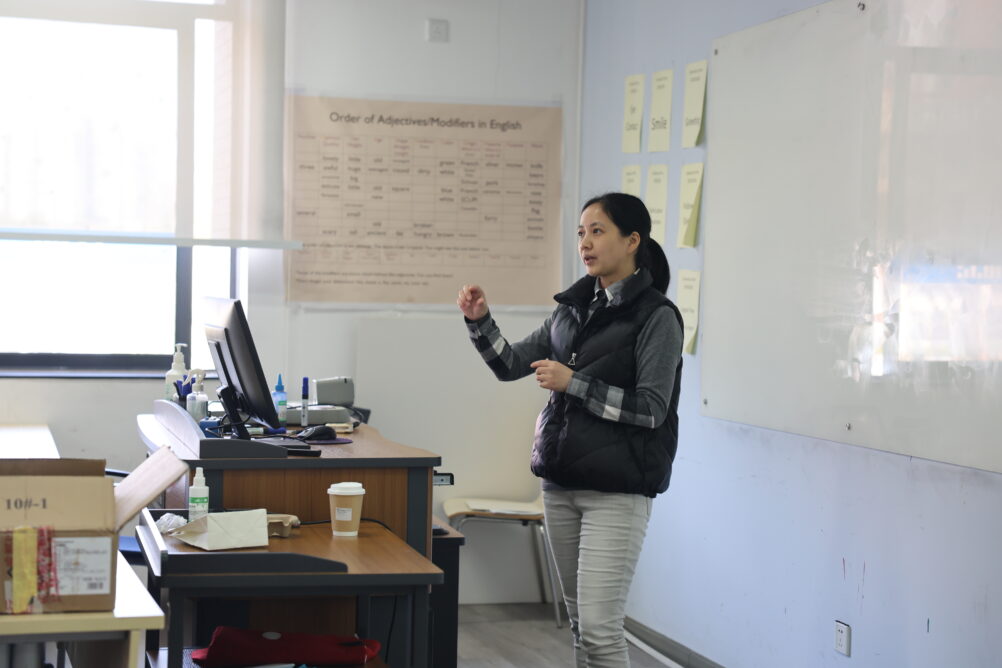
The presentation was followed by a lively discussion.
Dr. Ping-Chun Sui wanted to know if the AI determines that there may be AI-generated text in a student’s composition, how will the instructor respond?
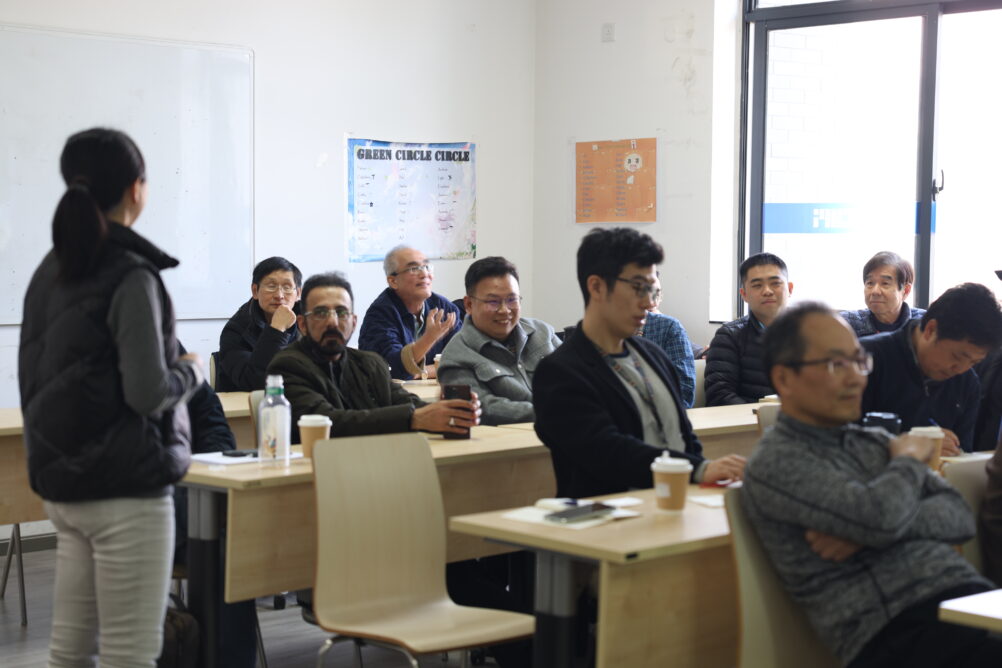
Dr. Yumei Li said that the subjectivity of the students and the interaction between instructors and students should always be highly valued. Therefore, when there is a noteworthy case, the instructor will talk with the student before grading.
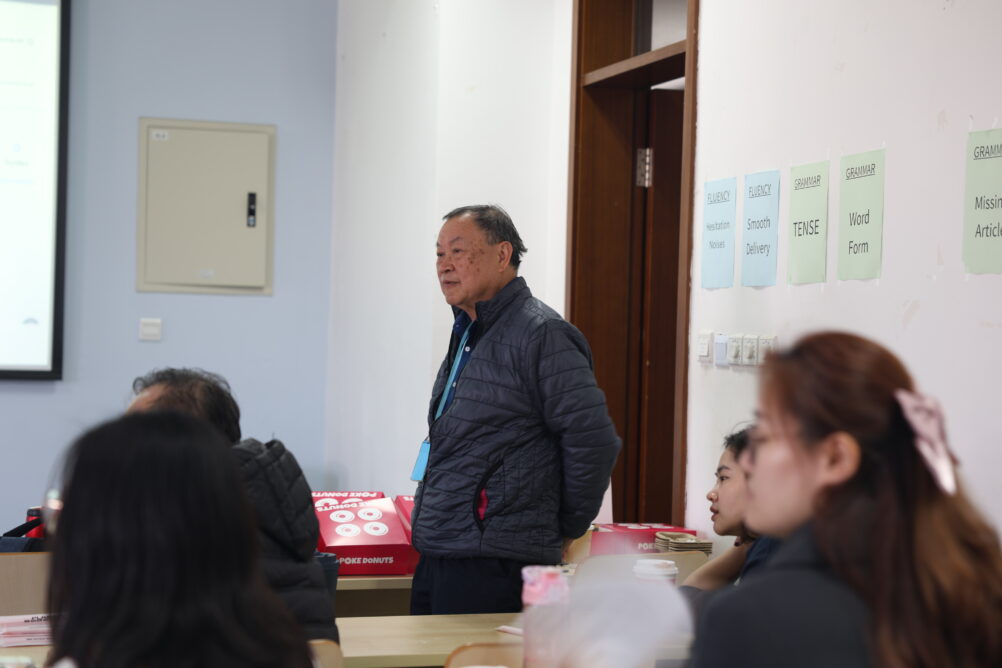
Dr. TsunZee Mai, Associate Dean for Academic Affairs of SCUPI, believed that our students are well aware that AI-based agents exist and are already experimenting with them on their own, but they need guidance about how to use them responsibly.
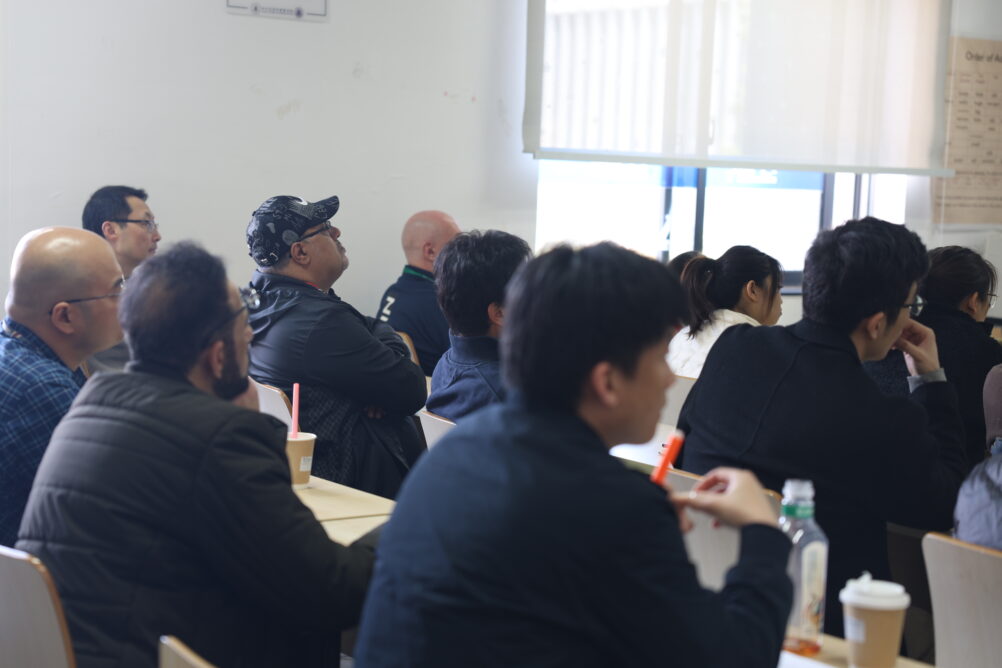
“Technology is a game-changer for education,” faculty and staff members who attened the seminar agreed. The exploring of AI’s role in higher education will be an ongoing topic at SCUPI.
